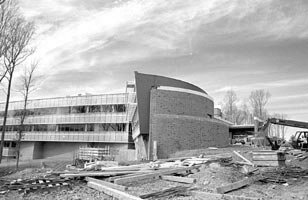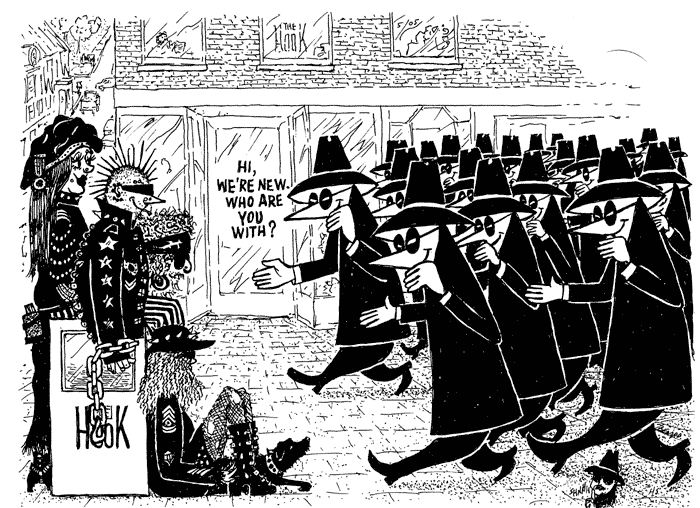More spies? NGIC woes-- and maybe grow
Usually when the Department of Defense announces military base closures, congressmen start lobbying to protect jobs in their states.
That's unlikely to happen in the congressionally challenged District of Columbia, so Charlottesville's largest military installation– the National Ground Intelligence Center– could gain personnel if the base realignment and closure report released last week is approved.
The DoD recommends moving intelligence analysis tasks– potentially 1,337 jobs– from Bolling Air Force Base in DC to NGIC's new, tucked-away Rivanna Station facility two miles north of the Charlottesville airport. That also fits nicely with defense strategies to relocate key functions out of the Washington area.
But it's not a given that intel will become Charlottesville's largest job-growth segment. "At this point, it's all speculation," says NGIC spokesman Captain Tim O'Neil.
He points out the many hurdles for DoD recommendations, including presidential and congressional approvals. And even if the changes are approved, it could take several years before Bolling employees set up shop in Albemarle County.
Nor is the north 29 facility, designed for 700 employees, ready to absorb another 1,300. "A lot has to happen," says O'Neil. Still to be determined is whether Charlottesville would phase in a couple of hundred new employees a year or start land acquisition negotiations and construction.
Chamber of Commerce head Tim Hulbert is pleased with the possibility of more federal jobs, but finds it "highly optimistic" that 1,300 would come here. "One hundred would be great," he says.
He calls NGIC (pronounced "n-jic") "a good solid employer" and says the federal government usually pays at market rate or above. "It's important that we add jobs, and the most exciting component is adding career-ladder jobs. We want to see NGIC healthy and playing an increased role in the community. We like NGIC," says the pro-business spokesman.
The agency, which moved in 2001 from what locals dubbed the "spy building" downtown on Seventh Street, could use some good press after being spanked recently by the Robb-Silberman Commission for contributing to the Iraq weapons of mass destruction "debacle."
Former Virginia senator Chuck Robb and retired appellate court judge Laurence H. Silberman co-chaired the commission that investigated the faulty intelligence – remember the yellow-cake uranium reports?– that led to the war with Iraq. The report singled out three agencies in particular.
The commission called the Army's NGIC here "completely wrong" in supporting a theory that aluminum tubes could be used for nuclear weapons, even though the subject was "at the core of [NGIC's] assigned area of expertise," reports the Washington Post.
"They've implemented some changes based on these findings," says DoD spokesman Lt. Colonel Chris Conway. "NGIC has recognized errors in analytical judgment occurred..."
Some members of the local peace community, who were vocal in protesting the Bush administration's decision to invade Iraq, seem less condemning of the local analysts blamed for providing faulty aluminum-tube data.
"I don't believe there was botched intelligence," says Susan Oberman, a member of the Charlottesville Center for Peace and Justice. "There are probably many competent people in the agency gathering intelligence. I believe those people were doing their jobs, and the information was diverted at the top level... I haven't read the report. That's a gut feeling."
"So they're not very good at photo analysis– or were they coerced into seeing things that were not there?" asks Elena Day, another Center for Peace and Justice member.
Day worries about an influx of NGICers adding to the growth on 29 North, but she doesn't think a bigger intelligence community makes Charlottesville a target for terrorists.
"Nuclear reactors in North Anna– I think that makes us more of a target," she says.

The new and improved "spy building" under construction in 2001
FILE PHOTO BY JEN FARIELLO

Mission accomplished? NGIC pledges to provide intelligence on foreign ground forces that will give decision makers "a decisive edge on any battlefield."
FROM THE NGIC WEBSITE http://avenue.org/ngic/index.shtml

#